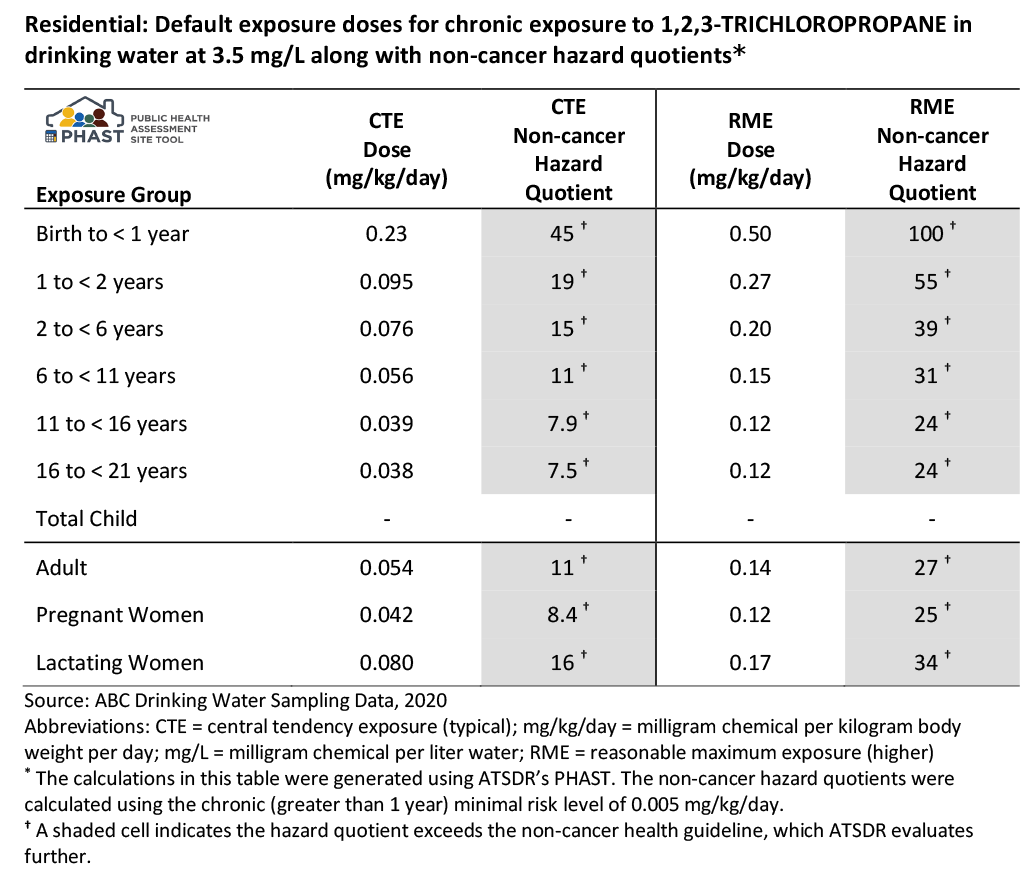Residential: Default exposure doses for chronic exposure in drinking water and non-cancer hazard quotients

The image above is a table, which has been recreated below in a readable format.
Residential: Default exposure doses for chronic exposure to 1,2,3-TRICHLOROPROPANE in drinking water at 3.5 mg/L along with non-cancer hazard quotients*
Exposure Group |
CTE Dose (mg/kg/day) |
CTE Non-cancer Hazard Quotient |
RME Dose (mg/kg/day) |
RME Non-cancer Hazard Quotient |
|---|---|---|---|---|
|
Birth to < 1 year |
0.23 | 45 † | 0.50 | 100 † |
|
1 to < 2 years |
0.095 | 19 † | 0.27 | 55 † |
|
2 to < 6 years |
0.076 | 15 † | 0.20 | 39 † |
|
6 to < 11 years |
0.056 | 11 † | 0.15 | 31 † |
|
11 to < 16 years |
0.039 | 7.9 † | 0.12 | 24 † |
|
16 to < 21 years |
0.038 | 7.5 † | 0.12 | 24 † |
|
Total Child |
– | – | – | – |
|
Adult |
0.054 | 11 † | 0.14 | 27 † |
|
Pregnant Women |
0.042 | 8.4 † | 0.12 | 25 † |
|
Lactating Women |
0.080 | 16 † | 0.17 | 34 † |
Source: ABC Drinking Water Sampling Data, 2020
Abbreviations: CTE = central tendency exposure (typical); mg/kg/day = milligram chemical per kilogram body weight per day; mg/L = milligram chemical per liter water; RME = reasonable maximum exposure (higher)
* The calculations in this table were generated using ATSDR’s PHAST. The non-cancer hazard quotients were calculated using the chronic (greater than 1 year) minimal risk level of 0.005 mg/kg/day.
† A shaded cell indicates the hazard quotient exceeds the non-cancer health guideline, which ATSDR evaluates further.